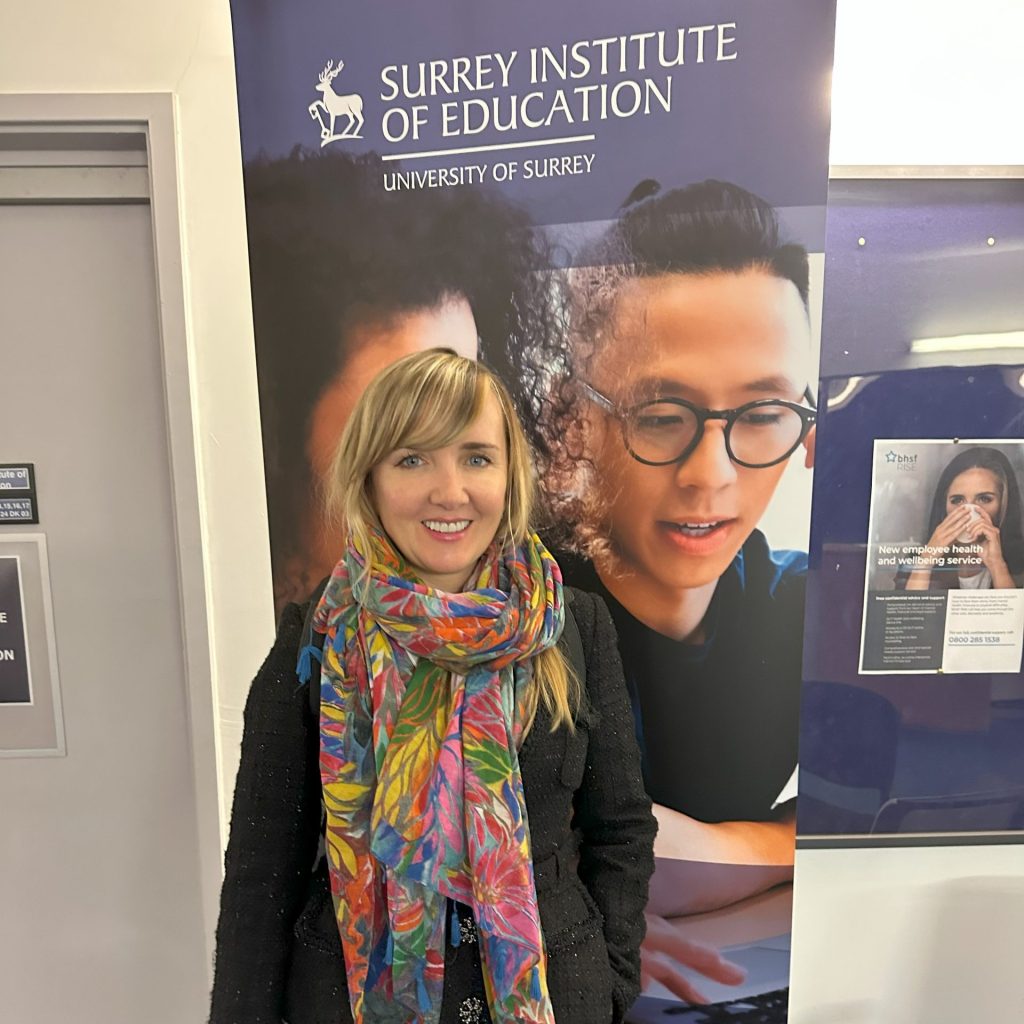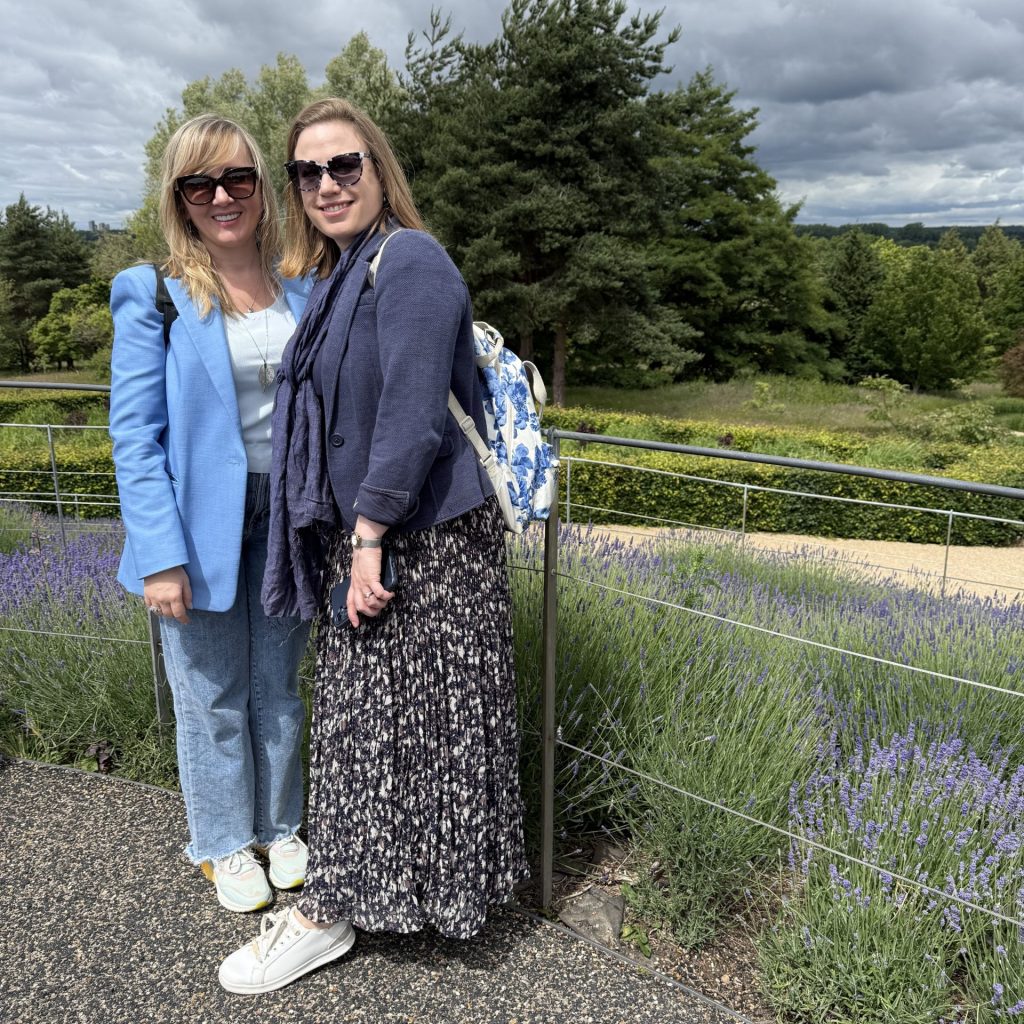Professor Anastasiya Lipnevich’s research focuses on how feedback in an educational setting affects learning and development. Her Fellowship at Surrey aimed to develop a strategy for translating that research into educational practice.
Students at all levels require and receive feedback from their educators. But how does this feedback affect behaviour, motivation and outcomes for the students?
Together with her host, Professor Naomi Winstone from the Surrey Institute of Education, Anastasiya recognised the need for the research community to forge a rigorous psychological science of feedback. Throughout the collaboration, they conducted a deep investigation into the effects of praise on student performance, using a mix of data sources. The forthcoming and a book deal – The Myths of Feedback – have been two key outcomes of the Fellowship.
We asked Anastasiya about her research and Fellowship at IAS.
I’ve always been fascinated by the ways in which feedback can shape not just learning outcomes but also students’ motivation, emotions and broader development. Early in my career, I realised that feedback is often taken for granted in classrooms – it’s something that happens all the time, yet we don’t always stop to think about what works, what doesn’t and why.
Having studied and worked in different countries, I was struck by how differently feedback was used in various contexts. For example, when I came to the US after experiences in Belarus and Italy, I noticed how frequently praise was used in American classrooms compared to the other contexts I knew. That contrast made me wonder how such differences might influence the students. This curiosity pushed me to study feedback not only as a pedagogical tool, but also as a psychological phenomenon shaped by culture, context and individual differences.
Feedback research has often been fragmented. Some studies focus purely on outcomes like achievement, while others focus on affective responses, but rarely do we see a comprehensive picture that captures the interplay of affective, behavioral and cognitive factors. In addition, there are many myths about feedback that persist in practice. These are ideas that sound appealing but aren’t actually supported by evidence. That’s one of the reasons our book project is titled The Myths of Feedback. In it, we want to directly address these misconceptions and provide teachers with evidence-based insights.
My research spans experimental studies, classroom-based investigations, and cross-national projects. Most recently, I’ve been working on studies that examine cognitive biases in feedback receptivity and explore the potential of AI feedback, as well as the scalability of feedback across different domains.
The Feedback Lab is a new initiative that Naomi and I are really excited about. The idea is to create an interdisciplinary forum where young researchers and established scholars can come together to explore innovative feedback methodologies. During my time at Surrey, we mapped out the steps for launching it, with a vision of it becoming a hub for collaboration, mentoring and the cross-pollination of ideas. The Lab will allow us to test new approaches, share data, replicate studies and collectively move the field forward.
The book has made wonderful progress. During my Fellowship, Naomi and I developed the full proposal and signed a contract with Corwin. We’ve outlined all eight chapters, drafted three of them, and mapped detailed plans for the rest. The book is designed to debunk myths about feedback while offering practical strategies, making it accessible to both researchers and practitioners.
Much of this work took place in retreat-style writing sessions set in Surrey’s gorgeous gardens and even vineyards, where we found ourselves drawing insightful parallels between the science of winemaking and the theory of feedback.
The practical application is at the heart of everything I do. For educators, our research provides guidance on how to use feedback more effectively. That is, how to frame it so that it motivates rather than discourages, how to balance cognitive guidance with emotional support, and how to avoid common pitfalls. The book will be a direct resource for teachers, and the Feedback Lab will generate and disseminate new practices that can be tried out in classrooms and through replications.

Absolutely. Feedback is universal, but of course, cultural context matters. That’s why my work draws on studies across multiple countries, including large international collaborations. The principles we’re developing are broadly applicable, but they can also be adapted to different cultural and institutional contexts.
There are so many! Signing the book contract with Corwin was a major milestone, as was completing drafts of the first chapters. Mapping out the Feedback Lab was another highlight. I also loved the conversations, whether with faculty in Veterinary and Medical Schools, PhD students, or colleagues in Cambridge. Each interaction opened new possibilities. But honestly, the biggest highlight was spending time with Naomi in amazing settings and talking about the work we love. Those conversations, away from our desks, brought a unique blend of productivity and creativity that made the Fellowship experience truly special.
In a word? Transformative. The Fellowship created space for deep, uninterrupted work, but also constant inspiration from students and my wonderful host and collaborator. It was the perfect blend of focused writing and collaborative exchange, and I look forward to strengthening these ties.

Anastasiya and Naomi at Wisley Gardens, taking a break from their writing sessions.
“Surrey has been a wonderful base for these collaborations, and I truly feel that once a Fellow, always a Fellow. I look forward to deepening these ties for years to come.”
Back to Q&A features